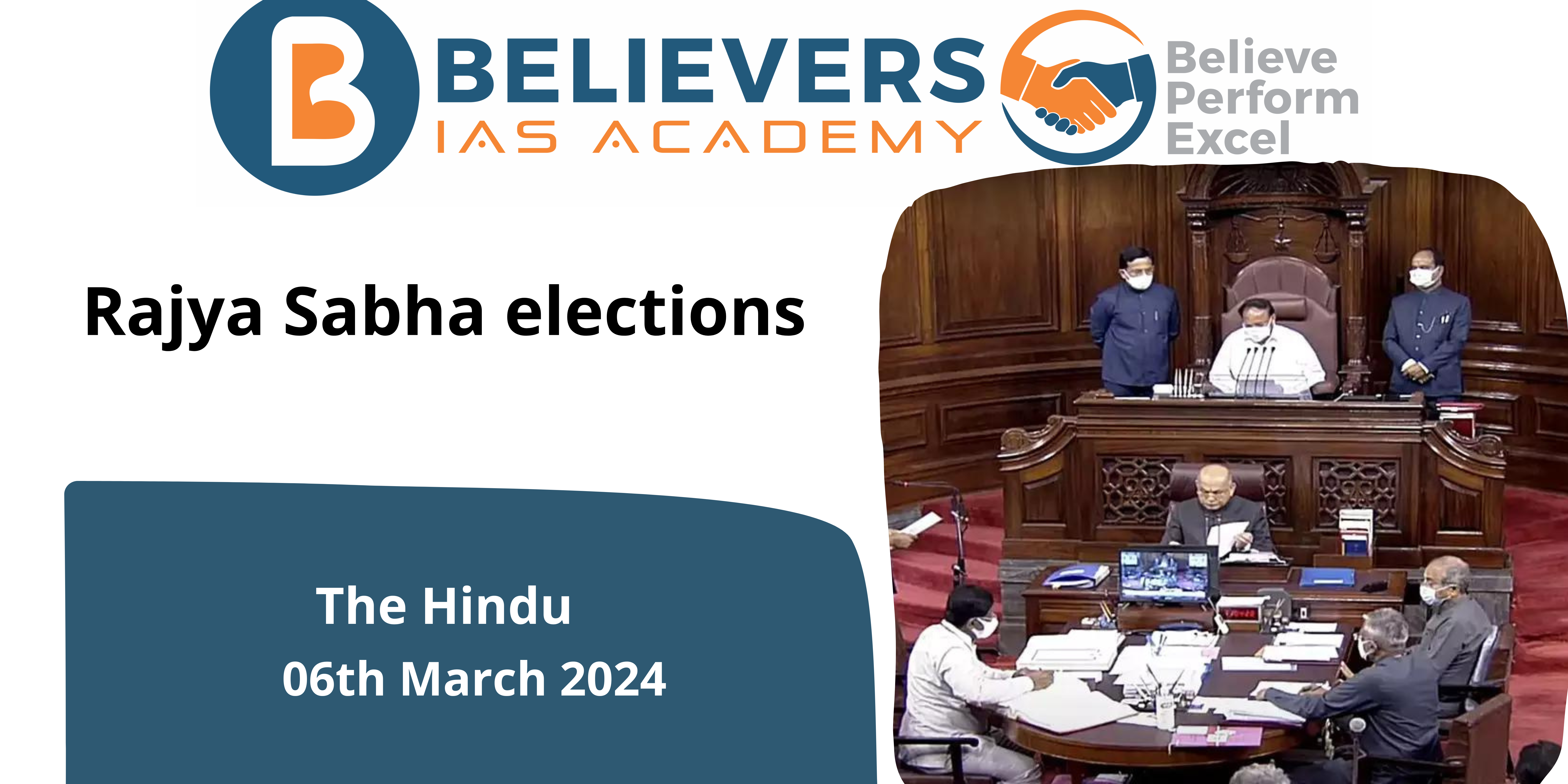Rajya Sabha elections
Context:
Recent Rajya Sabha elections in Uttar Pradesh, Himachal Pradesh, and Karnataka have highlighted concerns regarding the integrity of the election process due to instances of cross-voting by MLAs.
Relevance:
GS-02 (Polity)
Main Highlights:
- Rajya Sabha Election Procedure:
- Indirectly elected by Legislative Assembly members as per Article 80 of the Constitution.
- Amendment to the Representation of the People Act, 1951 introduced open ballot voting in 2003 to curb cross-voting.
- Seats: Rajya Sabha seats distributed based on state population and is by indirect election conducted through Single Transferable Vote system.
- Anti-Defection Law and Rajya Sabha Elections:
- The Tenth Schedule of the Constitution, containing anti-defection provisions, does not apply to Rajya Sabha elections.
- Members are not bound by party whips, allowing them to vote independently.
- Supreme Court Rulings:
- In the case of Kuldip Nayar vs. Union of India (2006), the SC upheld the open ballot system to ensure transparency.
- It clarified that voting against party candidates in Rajya Sabha elections does not invoke disqualification under the Tenth Schedule.
- The SC decision in Ravi S. Naik and Sanjay Bandekar vs. Union of India (1994) emphasized that actions both inside and outside the house can determine voluntary defection.
Conclusion:
The recent instances of cross-voting in Rajya Sabha elections underscore the need for continued vigilance to uphold the integrity of the electoral process. The legal framework, including the open ballot system and the absence of anti-defection laws in these elections, requires careful consideration to maintain transparency and fairness in the democratic process.




